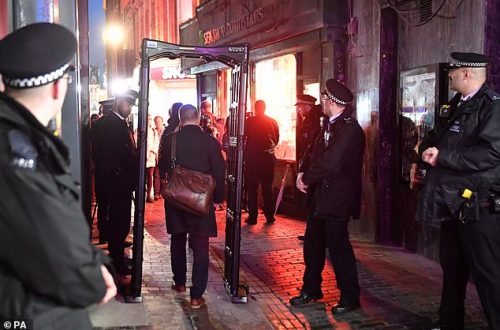Julie Bindel raises an important question in the Guardian in relation to the conviction of Ian Huntley for the murder of the two Cambridgeshire schoolgirls.
Why was he allowed to take a job at a school when so many allegations of sexual assault and rape had already been made against him by many and various girls of school age in the past ? Inquiries into the behaviour of the police and social workers may furnish us with an answer in time but it will be too late for Holly Wells and Jessica Chapman. I saw a senior Cambridgeshire policeman interviewed on television last night. He looked nervous and defensive. I can imagine why.
Part of the problem may be that
Often, there is little or no linking in police records between cases that are pursued and those that go no further after the initial allegation is made.
This is presumably because one of the principles of English law is that if someone is not convicted of a crime they should not be made to suffer the consequences as if they had been. This is an admirable principle but it’s blind application will lead to more situations like this one where a person who is a real danger to children ends up working among them. That cannot be allowed and a sensible balance must be struck between protecting an innocent man’s reputation and protecting the lives of children.
Bindel, who is the founder of an organisation called Justice for Women, has a different solution
We should demand that the government puts resources into public education campaigns, as it does for drink driving. If we have one over the limit and drive home without being caught, we will do it again, which might result in someone being killed. More women and children are at risk from the likes of Huntley than the rest of us are of drunken motorists, so let’s dispel the myths about sexual offences. Ordinary men often do terrible things. Let them get away with it at the early stages, and Soham won’t be the last case of its kind
It seems to me that her argument is based on the premise that men will casually visit sexual assault and rape on women and children if they feel they can get away with it. I’m in no doubt that such men exist, Huntley was clearly one, but to argue that all seemingly “ordinary” men will act in the same way unless the government tells them not to via television advertisements demonstrates a distorted view of human nature which does not accord with reality.
Her suggestion that
The CPS should proceed with all alleged sex crimes where the complainant is willing to give evidence in court, rather than playing jury and deciding it is unlikely to succeed.
is also problematic. She fails to understand that the CPS’s job is to consider whether there is enough evidence for a prosecution and weed out unprosecutable cases as not a good use of public money. Proceeding with all cases where the complainant is willing to testify would increase the Legal Aid bill massively and clog up the courts with unwinnable cases. Is she really arguing that women should have to give evidence at a trial when all the lawyers in the court know that the alleged rapist will walk away a free man because there isn’t enough evidence to convict him ? If so, Bindel needs to give more thought to the effect of testifying in public on these women, especially when the effort of reliving their experience will have been for nought. It is worth adding that there will also be cases where unprincipled women use the courts merely to harrass men if they are guaranteed a hearing without needing to provide evidence of any wrongdoing.
A cheaper and more effective to catching potential rapists and sexual offenders, which would have set alarm bells ringing in the Huntley case, is proper cross-referencing between police-force areas and social work divisions. If the headmaster of the Soham school could have known that Huntley had been the subject of so many allegations of rape by school-age girls he would have been in a better position to protect his own pupils.
